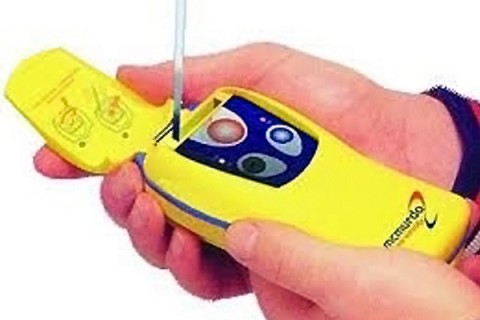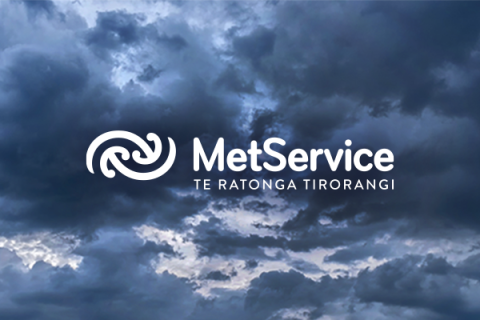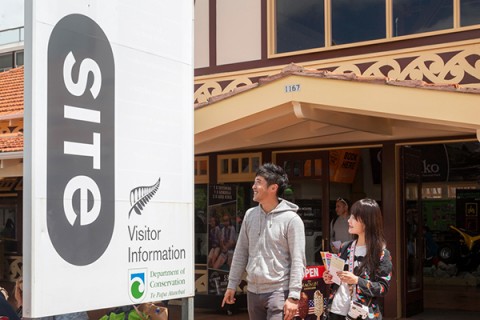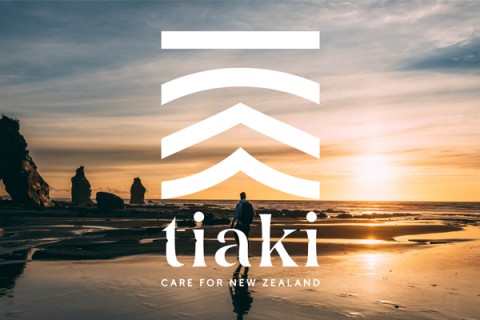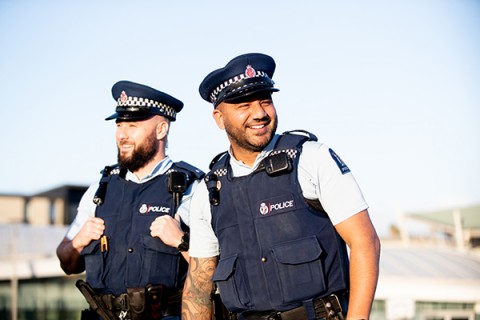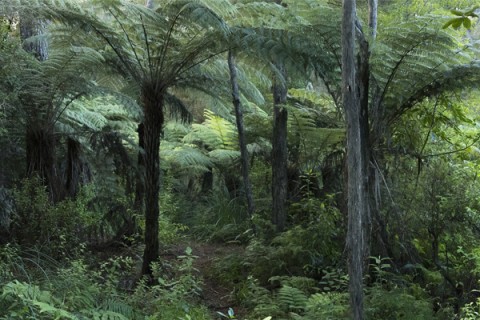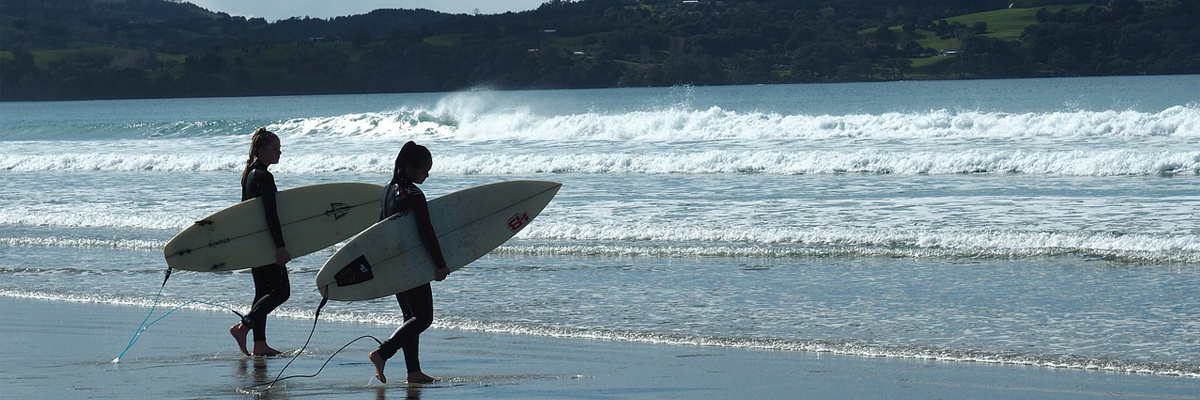
Popular activities

Swimming
Swimming is a great recreational activity, with so many wonderful beaches, rivers and lakes around the country. It's important to follow the Water Safety Code at all times, and remember that while our waters are beautiful and great fun, there can be dangers in all swimming locations that you must be mindful of, such as: rips at beaches that can pull you away from the shoreline, hidden objects under the water in rivers and lakes, and deceptively-powerful water movement in rivers than can sweep you downstream or under the water.
Learn more about safely enjoying beaches and rivers in the useful links to the left.
Key contacts for swimming information:
- Watersafety New Zealand - provides significant resources and awareness relating to water-based activities, including swimming.
- Surf Life Saving New Zealand - provides a national lifeguard service on selected beaches on behalf of central and regional government.

Diving and Snorkelling
Always follow the Water Safety Code when diving or snorkelling.
Ensure you follow basic safety requirements such as carrying a signalling device and using dive flags, which are a legal requirement. Diving and snorkelling is best undertaken following professional training. Decompression illness can occur when diving or rising too quickly, and proper training is required to ensure your safety. Make sure you always have a dive plan, and maintain your equipment regularly and never dive on your own, for safety reasons.
You must ensure you are physically capeable prior to diving, and a medical assessment is recommended by Water Safety New Zealand for those over 45 years old, in particular.
Learn more about safely diving or snorkelling using the useful links to the left.
Key contacts for diving and snorkelling:
- New Zealand Underwater Association - get snorkelling and diving training through the New Zealand Underwater Association, find out best practice on the water and contact emergency diving support.
- Watersafety New Zealand - provides significant resources and awareness relating to water-based activities.
- Surf Life Saving New Zealand - provides a national lifeguard service on selected beaches on behalf of central and regional government.

Paddle Crafts and Floats
Paddle crafts and floats include kayaks and canoes, surfboards, paddleboards and even inflatable floaties. You should always ensure that the craft you are on is only used on waters suitable to the limitations of the craft and it's durability, never leave childeren unattended using flotation devices on or near the water, and expect that no matter what kind device is being used, the chances of falling in to the water and needing to paddle or swim are high - so it's important to be mindful of your swimming capaibilty, and always follow the Water Safety Code.
There are important links on the left that include information about specific floatation devices.
Small boats
Small boats are required to follow boating rules in New Zealand waters, including regional by-laws. It is important to follow the Boating Safety Code and to be aware of changeable weather conditions. Find out more in the Boating section.
Key contacts for paddlecrafts and floats:
- Watersafety New Zealand - provides significant resources and awareness relating to water-based activities.
- Surf Life Saving New Zealand - provides a national lifeguard service on selected beaches on behalf of central and regional government.
- New Zealand Stand Up Paddle Boarding - a national association supporting SUP safety, racing, instruction and advocacy.
- White Water New Zealand - a national association supporting whitewater paddle sports.
- Packrafting Association of New Zealand - a national association supporting Packrafting in New Zealand.

Fishing on-shore, rock fishing and wading
Fishing by the water carries with it the potential to fall or be swept in to the water by moving currents or large waves. Make sure you follow the Water Safety Code and understand the dangers of the specific environment that you are fishing in, such as the often unexpectedly strong currents in some rivers or potentially large waves that could sweep over rocks by the ocean.
Key contacts for on-shore, rock fishing and wading:
- Fish and Game New Zealand - regional and legal information about fishing in New Zealand including fishing licences, regional by-laws, visitor permits and backcountry fishing.
- New Zealand Sport Fishing - fishing regulations, sustainability information and events.
- Water Safety New Zealand - key information about water safety and rock fishing safety advice.
- New Zealand Underwater Association - if you intend to go snorkelling or diving to fish, get training through the New Zealand Underwater Association and find out best practice and understand the laws when diving.
- Surf Life Saving - provides a national lifeguard service on selected beaches on behalf of central and regional government.


